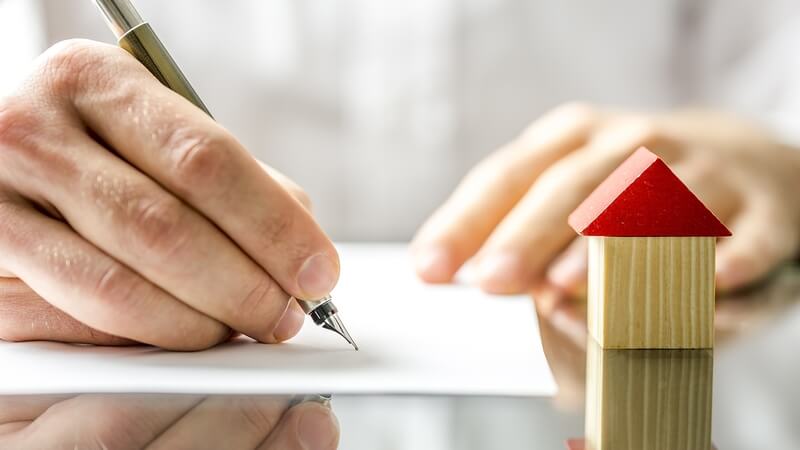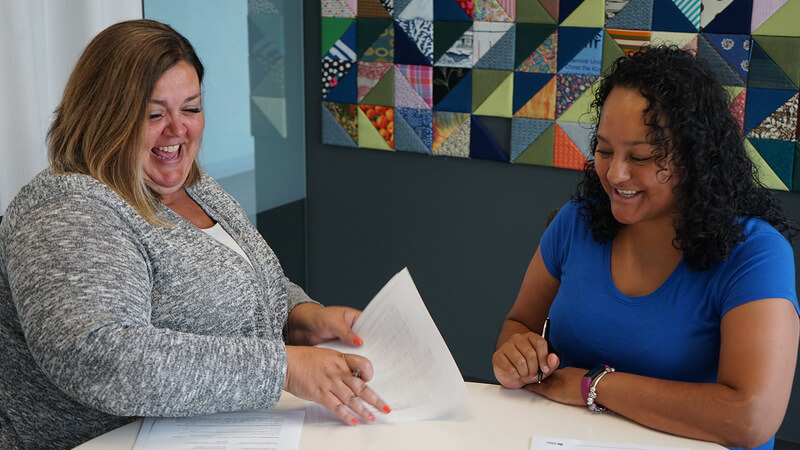What Happens to Your Mortgage Application if You Lost Your Job Due to COVID-19?
We continue to process the pain and hope of our nation’s uprising for racial justice amid a global health crisis. You can see ourrecent statements...
4 min read
 Twin Cities Habitat for Humanity
:
11:45 AM on January 27, 2020
Twin Cities Habitat for Humanity
:
11:45 AM on January 27, 2020
![What to Expect at Closing [VIDEO]](https://www.tchabitat.org/hubfs/Screen%20Shot%202020-01-23%20at%2011.32.39%20AM.png)
So you've finally made it to the home closing. But... has anyone actually walked you through what that means and what will happen during the closing process? In today’s episode, Homeowner Development Coordinator Adade Amenounve and Community Loan Officer Jen LaCroix explain what you can expect at closing, what you need to have with you, and some of the pitfalls to watch out for.
The closing is the final step in the homebuying transaction. This is where ownership of the property will be legally transferred from the seller to you, the buyer. It’s also where you’ll sign all of the mortgage documents. At the end of this hour of paperwork, you’re going to walk out with the keys to your new home!
Before you get to be a homeowner, there are a few things you’ll need to make sure you’ve done…
What to Do (And Not To Do!) Once You Get Pre-Approved for a Mortgage
Before you get to the closing, you will have one final chance to walk through the property you are purchasing. This doesn’t need to take long, but you will want to be thorough. Walk through every room, run the water in the kitchen and the bathrooms, and look for any damage that may have happened recently. Also, ensure that anything the sellers agreed to remove, leave behind, or fix has been done according to the agreed-upon decision.
Make sure you know when and where the closing will happen. Closing companies have many offices, so verify the exact location and time you need to be there. Jen recommends getting there at least 15 minutes early because if you’re late, you may not be able to close that day.
“The title companies have closings every single hour,” says Jen. “So if you miss your time slot, they just kind of move on to that next person and you could get pushed back.”
That delay could be a couple of hours, but during busy times of the month, it could be the next day. And that can cause a real headache! According to Jen, “If the person that you're buying a house from is buying somebody else's house, there's a domino effect that happens and now everybody's panicked on the day of closing. And it's because we didn't verify that time, that location, and made sure that we were on time.”
Before the closing, the loan officer will let you know exactly how much money you will need to bring with you. You will need to stop by the bank and get a cashier’s check made payable to the title company. The title company is who moves all of the money around on the day of closing. They will not accept cash or a personal check, so make sure to check with your loan officer to get the exact amount you will need and the name of the company to have the check made out to.
You will also need to bring a government-issued ID with you. This can be your driver’s license or passport. It will be used by the notary to make sure you are who you say you are.
The person running the closing is known as the “Closer,” or “Title Executive.” They’re responsible for explaining all of the forms you’ll sign and for making sure all the behind-the-scenes work gets done correctly. The seller will also have a closer at the table handling their documents.
Closing is likely the first and maybe the last time you ever meet the sellers of the home. The sellers have their own stack of paperwork to sign as part of the process of transferring title to you, but afterwards you will have a little bit of downtime to hear stories about the home or learn about some of the home’s little quirks.
Both real estate agents involved in the transaction will be at the closing. Your realtor's first job is to navigate any last-minute issues on your behalf. After all, that is why you hired an agent! They also have paperwork to collect and file with their offices.
Your loan officer will often be at the closing to answer any last-minute questions as well. The mortgage company will have already sent the money to the closing company, but if there’s a snag, it’s nice to have the loan officer there to help.
Occasionally, sellers will skip closing and sign the paperwork ahead of time. This practice is called pre-signing and is often done if you’re purchasing a home that was recently rehabbed or if the seller has already moved. Don’t worry, it’s perfectly normal for sellers to pre-sign and as long as the closers know it’s happening, they will take care of everything.
Get ready to sign a ton of forms. You will likely spend the first 30 minutes of the closing being handed documents to sign. The closer will quickly explain each form as they hand them to you.
The forms range from federally mandated disclosures to the actual mortgage contract to the deed that puts the home into your name. If you don’t understand something as you’re presented with it, feel free to ask. These are complex legal documents you are agreeing to and in the case of the mortgage, if you violate the terms by not paying each month, the bank can foreclose.
The actual signing of the documents usually takes 30 to 45 minutes. The Closers will then head into their offices to make copies of everything and ensure the money has changed hands correctly. That process typically takes 15 minutes.
What should you do during that break? This is a great time to exchange the keys, figure out which keys open which doors, grab the garage door openers and the codes for the security system, and all of those last-minute items you don’t want to forget. This is also a chance for you to talk to the sellers about the history of the home or maybe any neighborhood hot spots they can share.
Don’t forget to have fun! Take some pictures - you are minutes away from being a homeowner!
If you liked this video and want some more first-time homebuyer tips, subscribe to our YouTube channel!
Your gift unlocks bright futures! Donate now to create, preserve, and promote affordable homeownership in the Twin Cities.

We continue to process the pain and hope of our nation’s uprising for racial justice amid a global health crisis. You can see ourrecent statements...

We continue to process the pain and hope of our nation’s uprising for racial justice amid a global health crisis. You can see ourrecent statements...

In the Twin Cities, we’re in one of the most competitive housing markets we’ve seen in the last several years. “I’ve been in banking and finance for...